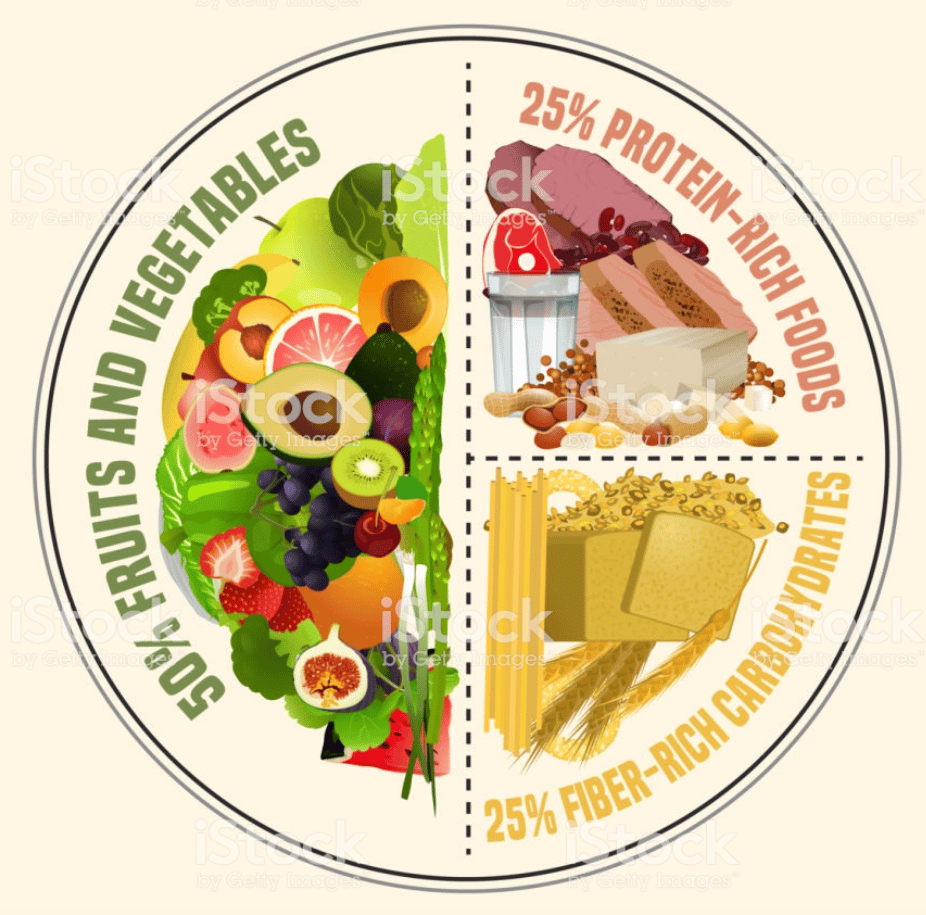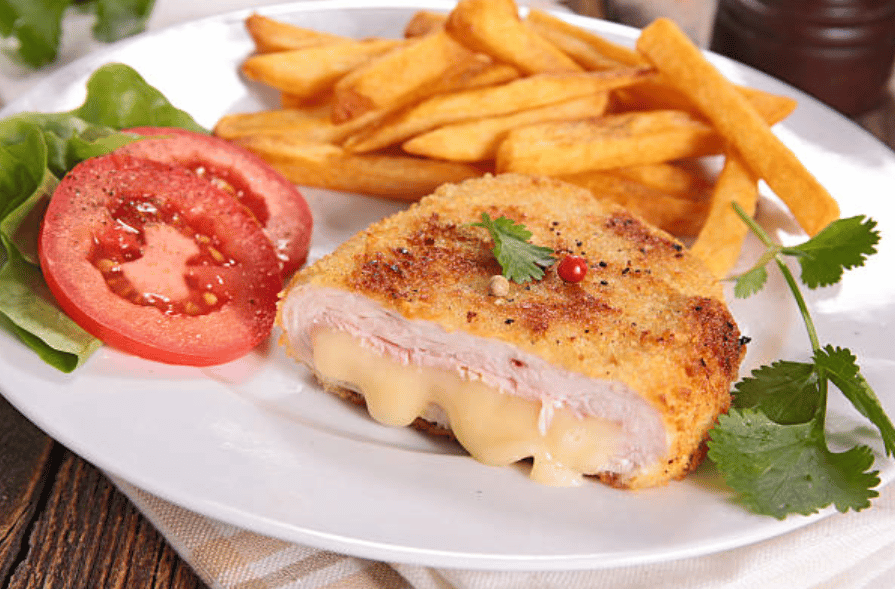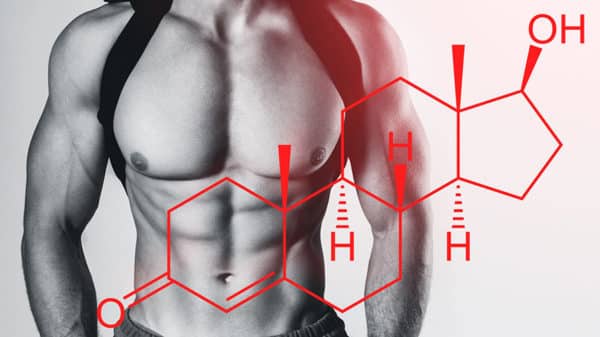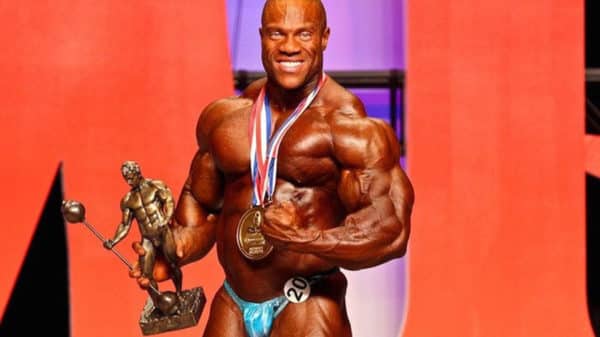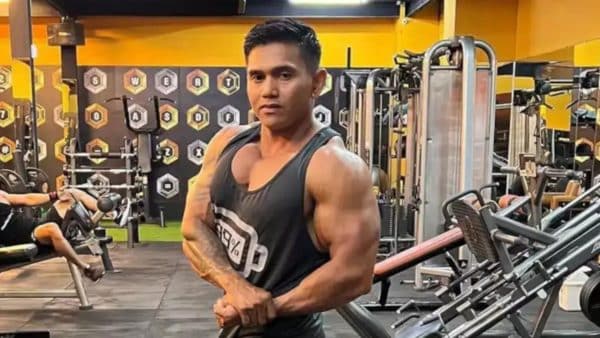You wish to build muscle or lose weightAre you trying to reach your goal and training hard in the gym or at home to achieve it? But after several months of effort, you still haven't reached your sporting goal? There is a good chance that the problem lies with your nutrition. Indeed, your diet must be impeccable to succeed in gaining weight or in getting lean. But controlling your caloric intake according to its energy costsis no easy task. Discover our advice on how to adopt a diet in line with your expectations.
The importance of an adapted feeding program in bodybuilding
When we want to build muscle or lose fat, it necessarily involves calculate your daily caloric requirement and to take into account different parameters to obtain a good macronutrient distribution.
Whether it is to progress in bodybuilding or to maintain a good general state of health, this stage is fundamental, as well for the practitioners of bodybuilding as for the bodybuilders or the sportsmen in general.
Indeed, just like training, sleep and motivation, nutrition is an essential element to take into account for progress in bodybuilding. But why is diet so important when trying to lose weight or build muscle?
The diet is very important in bodybuilding because a good diet will inevitably influence your results. Indeed, the muscle is built at rest thanks to the macronutrients (lipids, carbohydrates and proteins) and micronutrients (vitamin A, vitamin C, iron, magnesium, etc.) that we provide through the consumption of food and the intake of food supplementsand not during the workout.
In addition, eating healthier will give you a better sleep. This will naturally promote muscle and nerve recovery, another essential element for your sporting progress.
Even if you are beginner in bodybuildingIn order to gain muscle volume and mass, your meals must be of good quality. Without a high-protein diet to accompany the building of muscle, your progress may stagnate quickly.
The basics of a good bodybuilding diet
Whether you are looking for a feed plan for a mass gain or a dryness, certain fundamental principles are inescapable.
In weight training, a healthy and balanced diet acts as a fuel. The better the quality of your food, the faster and more efficient your recovery will be.
To repair micro-tears inflicted on your muscle fibres During your physical activity, it is imperative to ensure that your calorie intake is sufficient. Similarly, to stimulate the functioning of the metabolism, a sportsman's diet must ensure a balanced distribution of macros (proteins, lipids, carbohydrates and of course other essential vitamins and minerals which we will discuss in another dedicated article).
Depending on your goal (mass gain, weight loss, cardio improvement, etc.), each macronutrient will need to meet a certain percentage of your daily energy requirement.
Let's take the example of a person who does not exercise. His macronutrient intake should be distributed as follows:
- 25 % of protein to form new cells and repair muscle fibres (these can be animal or plant proteins),
- 50 % of carbohydrates to get energy,
- 25 % of lipids to maintain hormonal balance (contrary to popular belief, fatty acids should not be banned from your diet).
Several factors must be taken into account to adjust the distribution of these macros. Thus, the needs covered by the diet of a woman losing weight will be quite different from those of a man on a diet. Similarly, in the context of an objective of muscle growth, the protein intake should be more consistent.
To achieve results, it is therefore important to how to read food labels. This will allow you to better understand the nutritional value of the foods you consume on a daily basis. To follow precisely the distribution of your macronutrients, you can download an application dedicated to bodybuilding nutrition (Fatsecret or MyFitnessPal for example).

DISCOVER MY E-BOOK OF RECIPES
Should you weigh your food at every meal?
To know if your meals for a gain of mass or a loss of fat are balanced, it is indeed advised to weigh your food before you eat them. This way, you will know exactly how much calorie count ingested during your day, as well as the distribution of your macros.
Admittedly, weighing what you eat may seem restrictive at first. But over time, you'll get better and better at following your eating plan, and your experience will help you adjust your portions by eye.
If you don't have a kitchen scale, you can use a simple technique with your hand. Although less accurate, it will still help you choose the right good portions during your meals.
For the meatIf you are eating a large portion of meat, you should not eat more than the size of your palm. This is equivalent to between 75 and 130 grams of meat with an excellent animal protein content. The measurement is the same for bread, and this will represent about 30 grams.
For fish, plan on enough to fill your entire hand. For the legumes such as lentils and dairy products (yogurt, skyr, etc.), the fist represents about a whole cup, or 175 milliliters.
For starchy foods such as pasta or rice, the ration should be the size of your closed fist. If you eat fruits and vegetablesThe proportion of vegetables, especially green vegetables, can be higher and will be the equivalent of two fists.
On the other hand, if you eat butter or olive oil, make sure you don't eat more than one finger.
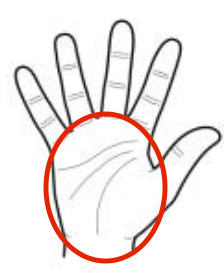
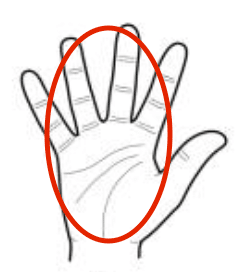
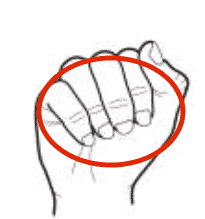
Know the foods to eat in a balanced way
Whatever your appetite, it is essential to eat well and as healthy as possible. In addition to aiding your digestion, avoiding unprocessed foods as much as possible will help you build muscle or lose weight.
So there are different types of food:
- the unprocessed food or minimally processed foods such as green vegetables, fruit, eggs, red meat, white meat, basmati rice, brown rice or lentils,
- processed culinary ingredients such as oils, butter or cream,
- Processed foods such as jarred products (to which salt and sugar are added to prolong their shelf life), wheat flour, sugar or canned sardines,
- ultra-processed foods with added fat and preservatives, such as biscuits, soft drinks, sausages, nuggets, breaded fish, packet soups, frozen pizzas and cordon bleu.
The ultra-processed foods are the ones with the most pleasant taste. They are recognizable by their plastic or cardboard packaging. On the other hand, like cordon-bleus, they are disastrous in terms of nutrition. Several studies have shown that blue cords are bad for your health. On closer inspection, it is in fact a totally processed product containing meat, but also feathers and bone fragments. Low in protein, cordon bleu is high in fat and additives.
Unfortunately, ultra-processed foods are the most accessible financially. They are therefore often favoured by certain public authorities, such as hospitals or old people's homes for example.
The basis of the sports nutrition is to focus on unprocessed foods and processed culinary ingredients. Incorporating them at a rate of 80 % into your daily diet is a great way to eat healthy and balanced.
Even if we were used to eating processed and ultra-processed food when we were children, especially in the school canteen, it is our duty to teach our children the importance of a healthy and varied dietWhether or not you practice bodybuilding.
Some examples of foods for bodybuilding
If you practice bodybuilding or fitness, certain foods are to be preferred:
- eggs (especially egg whites),
- chicken breasts,
- sweet potatoes,
- oatmeal,
- whole grains,
- oilseeds (almonds, cashews, unsalted peanuts, etc.),
- quinoa or rice,
- lentils,
- fish,
- the lawyer,
- all vegetables because they are rich in fibre.
How many meals should you eat per day in bodybuilding?
Ideally, it is recommended that the three main meals (breakfast, lunch and dinner) and add a snack at 4pm and a snack before bed. This of course depends on your goal in bodybuilding.
Finally, don't forget to moisturize properly. When you practice a sport, weight training or fitness, you evacuate a lot of water through perspiration. It is therefore essential to drink water throughout the day.
Calling on a coach specialized in sports nutrition will allow you to reach your goals more quickly and to have a balanced diet. Indeed, a professional will set up a food plan taking into account the number of calories that you must consume each day. This nutritional program will of course include typical recipes, tips and advice. sample menus and advice on feeding and weight training. The coach can even prepare a shopping list for you to make it easier. So you don't have to worry about what to eat and when to eat it.
You will of course benefit from a nutritional follow-up to adjust your diet according to your activity and progress.
If you wish, you can also benefit from a weight training program adapted to your muscle mass gain, your dry muscle gain or your fat loss.
Conclusion
In bodybuilding, diet therefore plays a fundamental role and has a direct influence on the athlete's performance. This is also the case in most sports. Whether you want to build muscle or lose body fat, it is important to know exactly how many calories you need per day and how they are distributed. To achieve your sporting goals, always choose healthy, unprocessed foods.
Further articles to read:
Focus on macronutrients and micronutrients

